Our Commitment

Our family has raised livestock on this land since 1866, for five generations. That is commitment.
In 1995, we decided the right thing to do for our cattle herd would be to transition to a grassfed pastured program. We gave up feeding grain, hormone implants, and antibiotics. Making this change flew in the face of the tried-and-true way of raising cattle, but we did it. That is commitment.
In 2000, we decided the right thing to do for our land would be to cease using chemical fertilizers and pesticides. It was economically painful, but we did it. That is commitment.
In 2002, we sold the first pound of American grassfed ground beef to be marketed as "American Grassfed Beef" to Whole Foods Market and Publix. The hours spent that brought us to this point were innumerable. That is commitment.
In 2005, we decided the right thing to do for our animals and for our customers would be to build our on-farm USDA-inspected red meat abattoir. There was only one other in the country. It was an enormous economic risk, but we took it. That is commitment.
In 2008, we decided it was wrong for our land and our herd to operate a monoculture of cattle, so we acquired a small herd of sheep. That is commitment.
In 2010, we raised chickens and holiday turkeys in our pastures. It was an incredibly steep learning curve, but we did it. That is commitment.
In 2010, we decided Certified Organic vegetables had a place at White Oak Pastures. With making our own compost from the viscera of the animals we processed, diversifying our farm into vegetable production was the right thing to do. That is commitment.
In 2010, we shipped our first online order. This was the first step in expanding our business digitally, it challenged our abilities to handle online fulfillment. That is commitment.
In 2011, we decided it would be necessary to construct an on-farm USDA-inspected poultry abattoir. We added ducks, geese, and guineas to our flocks. White Oak Pastures became the only farm in the United States with its own red meat and poultry on-farm, USDA-inspected abattoirs. It was another incredible economic risk and another steep learning curve, but we did it. That is commitment.
In 2012, we built an on-farm restaurant to feed our 100 employees. Our open-aired Pavilion, located on the edge of our organic vegetable farm, serves lunch every day and supper Wednesday through Saturday. The White Oak Pastures Pavilion is one of the only restaurants in the state that is dual-inspected by the Health Department and the Department of Agriculture. This was not an easy endeavor, but we did it. That is commitment.
In 2013, we raised 7,000 laying hens to maturity to take our pasture-laid egg production to another level. Our chickens live, roost and lay outside in our pastures, never confined to a crate or cage. Our eggs are candled, graded and packed on the farm five days each week. That is commitment.
In 2013, we started an internship program to nurture the increasing interest on how farmers like us can raise livestock that’s better for the animals, the people, and the cities they surround. That is commitment.
In 2014, we invested in lodging at White Oak Pastures, in order to further our commitment to the education of regenerative agriculture. White Oak Pastures needed to become more of a destination, attracting customers that are passionate about the food production system. Restoring older houses and investing in the rural and desolate town of Bluffton was not convenient or inexpensive, but we did it. That is commitment.
In 2015, we invested in software to help us vertically integrate our customers, inventory, online store, accounts receivables, accounts payable and payroll. It was a steep learning curve in a direction we had little interest in, but we didn’t give up. That is commitment.
In 2016, we dove deep into learning more about regenerative agriculture and holistic management. We became one of only a few global Savory Hubs. This brought on new grazing techniques and significant infrastructure investments. We knew it was the right thing to do for the land, the animals and our community. It wasn't cheap or easy, but we did it. That is commitment.
In 2016, our rural farm town needed a store. Instead of building an inexpensive, new building, we made the decision to restore Bluffton's 175-year-old General Store. This store, located on Church Street in downtown Bluffton, was once a major place of small-town commerce. But, when agriculture was industrialized, citizens abandoned our small town for jobs and a better chance of making a living. Little stores like the Herman Bass Store (remodeled to be the White Oak Pastures General Store) closed in the 1960's, leaving Bluffton to look much like a deserted western ghost town. When we re-opened our General Store, it became the only place within a 10-mile radius to buy a coca-cola or roll of toilet paper. Today, you can shop for White Oak Pastures meats and poultry, as well as our full lines of tallow goods, pet chews and leather products. We also stock several items made in Georgia by some of our artisan friends. That is commitment.
In 2017, we built a value-added commissary and started further processing our fruits into jellies, vegetables into pickled goods, and our meats into jerkies. That is commitment.
In 2018, our online business had grown to a point that investments were needed to effectively manage inventory produced in our on-farm abattoirs. We are farmers, not inventory or IT specialists, so expensive software was purchased and procedures set in place. We knew we wanted to handle order fulfillment on the farm, to keep this function in line with our vertically integrated production system. This learning curve was and continues to be, steep. This is commitment.
In 2020, we moved a resident flock of sheep 6 miles south to Silicon Ranch's Bancroft Station property to graze 650 acres of land that also accommodates a solar array. This decision was influenced by our interest to create carbon sinks, restore biodiversity and soil health, and add to the environmental, social, and economic benefits of these clean energy projects. That is commitment.
In 2021, we started a processing intern program to further commit to the education of our community and beyond. That is commitment.
In 2021, we built The Center for Agriculture Resilience (CFAR, a 501c3) to educate thought leaders on the environmental, economic and social benefits of building resilient animal, plant and human ecosystems that can nourish our communities. That is commitment.
We are now certain this journey to do the right things for our land and animals is endless. We will come to realize there are other steps we must take, and as we figure out what these next steps are, we will take them. That is because we are committed.




